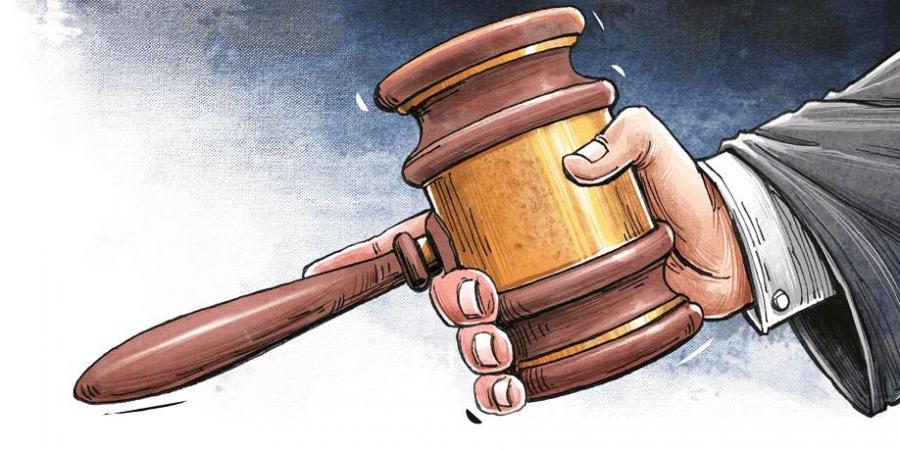By Sonny Onyegbula
Nigeria’s judiciary, considered a cornerstone of its democracy, now grapples with corruption threatening the reputation and integrity of a very key arm of governance. The problem, if resolved could significantly undermine public trust and the rule of law, hence the need to act swiftly to halt the rot and promote democracy and accountability.
The integrity of the Nigerian judiciary is not just important; it is the bedrock of faith in the institution and its ability to deliver justice.
Corruption in the judiciary, whether as bribery, nepotism, or embezzlement, portends serious consequences, including the miscarriage of justice, the erosion of public trust, and the undermining of the rule of law.
To address the problem, stakeholders must take an integrated and comprehensive approach that includes strengthening judicial accountability mechanisms, improving judicial appointment processes, enhancing transparency in judicial proceedings, providing adequate resources and support for the judiciary, and promoting a culture of integrity and ethical behaviour within the legal profession.
The task is not for the government or civil society alone, but a collective responsibility. All hands must be on deck to tackle the root causes of corruption, such as inadequate compensation for judicial officers, lack of transparency, and political influence.
Corruption threatens the foundations of Nigeria’s democracy, allowing those with power and influence to manipulate the system for their selfish gain. Justice is denied to those who deserve it and trust is eroded in institutions meant to serve and protect public interests.
Only radical reforms and concerted efforts can remedy the situation and restore public trust in Nigeria’s judiciary.
Over the years, media reports have highlighted shocking corruption within the judiciary, causing widespread outrage and calls for reform. In one notable instance, a high court judge was implicated in a bribe scandal to influence the outcome of a case. This incident sparked intense debate and highlighted the need for urgent reform.
As Lagos-based lawyer, Ebun-Olu Adegboruwa (SAN) says: “The judiciary (in Nigeria) has become a haven for corrupt practices. Judges are now seen as… susceptible to the lure of wealth and power.”
Human rights lawyer Femi Falana (SAN) echoes the same sentiment, saying: “The corruption in our judiciary is a reflection of the rot in our larger society. We must address the root causes of this malaise to restore the integrity of our courts.”
Another lawyer Clement Nwankwo said: “The judiciary is supposed to be the last hope of the common person, but with rampant corruption, it is clear that the system is broken. We need radical reforms to restore the people’s trust.”
Public support and engagement are crucial in the fight against judicial corruption. We must all hold those responsible accountable and ensure justice is served.”
The Independent Corrupt Practices and Other Related Offences Commission (ICPC) has also reported that the judicial sector led the Nigeria Corruption Index between 2018 and 2020. These incidents and reports emphasise the need for a comprehensive overhaul of the judiciary to restore confidence in the institution.
The United Nations and other international bodies have also expressed concerns about corruption in Nigeria’s judiciary. The United Nations Development Programme (UNDP) has noted that Nigeria’s complex society and political instability have contributed to corruption and other problems that hinder sustainable development.
Similarly, the United Nations Convention Against Corruption (UNCAC) has acknowledged that corruption is a big problem in Nigeria and has called for measures to prevent and combat corrupt practices. Other international bodies have also reported widespread corruption in Nigeria, with an estimated 117 million bribes paid in 2019 alone.
As the Nigerian government and civil society organisations work towards reforming the judiciary, it is essential to prioritise transparency, accountability, and the protection of human rights. These principles should guide all actions and decisions in the reform process. Nigerians deserve a justice system that serves their interests, not just those of the powerful and corrupt.
Deliberate steps must be taken to ensure a transparent and merit-based system in recruitment/appointing judges and judicial officials based on the principles of recruitment from qualified individuals and selection and advancement determined solely on merit. This is crucial to ensuring the judiciary is independent and staffed with judges well-versed in the law.
Furthermore, an independent body must be established to investigate and prosecute cases of judicial corruption. This body should be independent of political influence and have the power to hold judges accountable for unethical behaviour.
Adequate funding of the judiciary, regular training of judges and staff and improving the working conditions of judges and judicial staff should also be prioritised to reduce inducement and the influence of external factors.
Reforms should involve ending delays, clearing backlogs of cases; improving transparency in judicial proceedings and decision-making; providing legal aid and support to marginalised communities; strengthening legal education and training for judges and legal practitioners, and encouraging citizen participation and engagement in the justice system.
The fight against corruption is continuous. Vigilance, persistence, and dedication are also necessary to consolidate the gains from previous measures.
There have been efforts in the past to combat corruption within the judiciary, including the National Judicial Council’s Code of Conduct for judges and the establishment of the Corruption and Financial Crime Cases Trial Monitoring Committee.
However, more needs to be done to address this entrenched problem.
As emphasised by Justice Ariwoola: “The fight against corruption in the judiciary requires a collective effort from all stakeholders – judges, lawyers, government, and civil society.”
The stability and prosperity of any society hinge on the rule of law and effective administration of justice, which guarantee accountability of government officials and the protection of citizens from abuse.
Furthermore, fair and timely dispute resolution and criminal prosecution are critical components of the effective administration of justice. Corruption subverts these core principles and erodes public trust in government institutions and the legal system.
As the late Justice Chukwudifu Oputa once said: “Justice is the total of all virtues, and the foundation of all virtues is justice.”
The new Chief Justice of Nigeria, Kudirat Kekere-Ekun, has the daunting task of restoring integrity to the judiciary and upholding the rule of law
Sonny Onyegbula is a U.S.-based legal Consultant
![]()








